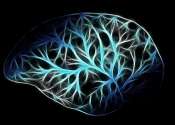Brain organoids replicate key events in human brain development
Organoids are carefully grown collections of cells in a dish, designed to mimic organ structures and composition better than conventional cell cultures and give researchers a unique view into how organs such as the brain ...
Sep 30, 2022
0
48









